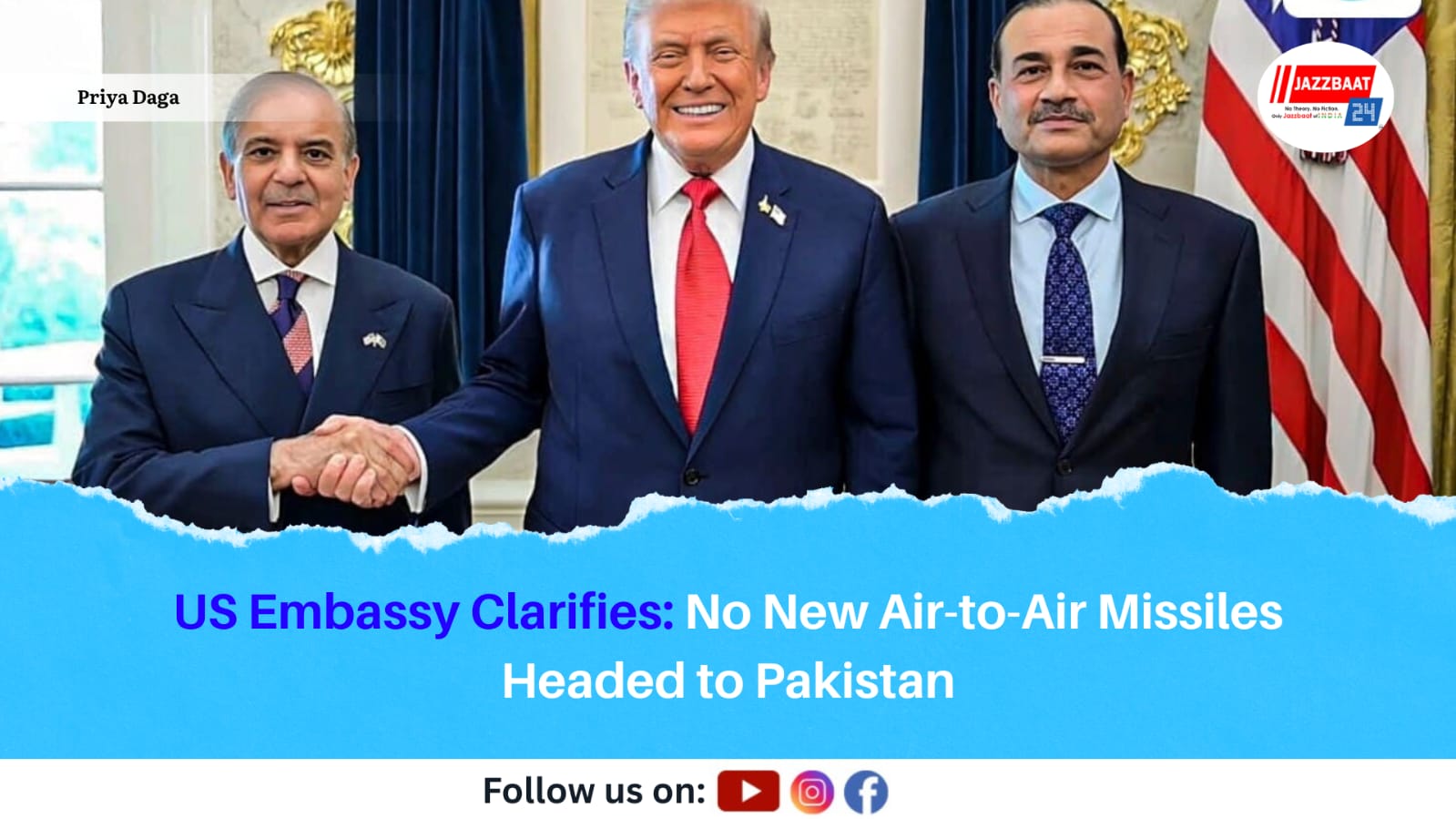
By Priya Daga
Washington clears the air after reports sparked speculation about renewed military supplies
The United States Embassy has put to rest swirling rumours about supplying Pakistan with advanced air-to-air missiles, issuing a clear statement on Friday that no new weapons systems are in the pipeline.
The clarification came after recent reports suggested Washington was considering delivering AIM-120 Advanced Medium-Range Air-to-Air Missiles (AMRAAMs) to Pakistan, fueling speculation about warming ties between the two nations. The confusion stemmed from a Department of War contract announcement that listed Pakistan among 35 countries.
"No part of this referenced contract modification is for deliveries of new Advanced Medium-Range Air-to-Air Missiles to Pakistan," the US Embassy stated firmly. The embassy explained that the September 30 contract was merely an amendment to an existing agreement for maintenance and spare parts not new weaponry.
The $2.5 billion contract, awarded to Raytheon in Tucson, Arizona, covers sustainment services for AMRAAM C8 and D3 variants across multiple allied nations. Pakistan appears on the list solely for maintenance of its existing arsenal, with the embassy emphasizing that "the sustainment does not include an upgrade to any of Pakistan's current capabilities."
This development is particularly significant given the complex history of US-Pakistan military relations. Over the years, arms supplies have served as both a diplomatic tool and a source of regional tension, particularly with neighboring India monitoring such transactions closely.
The timing of these reports had raised eyebrows in diplomatic circles. Recent months have seen increased engagement between Washington and Islamabad, including high-level meetings between US President Donald Trump and Pakistani leaders, including Prime Minister Shehbaz Sharif and Field Marshal Asim Munir.
However, Friday's statement suggests that while diplomatic channels may be warming, military cooperation remains within existing frameworks rather than expanding into new territory. The clarification appears designed to manage expectations and avoid misunderstandings that could complicate regional dynamics.
The contract's completion timeline extends to May 2030, indicating long-term maintenance commitments for various nations' existing missile systems. Among the 35 countries listed are NATO allies, Asian partners and Middle Eastern nations reflecting the AMRAAM's widespread adoption among US allies.
For Pakistan, the statement means the status quo continues: maintenance of existing capabilities without the controversial addition of new advanced missiles that might have shifted regional military balances or triggered concerns from neighboring countries.
The embassy's swift clarification demonstrates Washington's awareness of how arms-related announcements can reverberate through South Asia's delicate security landscape. By drawing a clear line between maintenance and new supplies, the US appears intent on managing its relationship with Pakistan while being mindful of broader regional sensitivities.
As the situation stands, Pakistan will continue operating its current AMRAAM inventory with US support for upkeep, but shouldn't expect fresh deliveries anytime soon putting to rest, at least for now, speculation about a significant shift in US-Pakistan military cooperation.